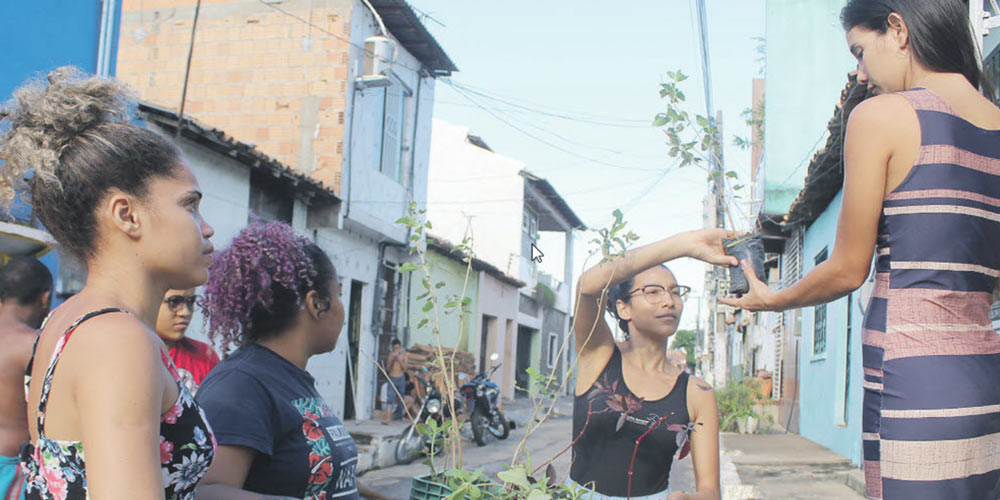Rios de Encontro, the eco-cultural and social education Project, based in the community of Cabelo Seco, Marabá, since 2008, is in quarantine. Dozens of children and young people have been asking the coordinators since the beginning of March, when the Owl Cinema, the Leaves of Life Library, the Rabetas Audiovisual courses and the AfroMundo dance company will reopen. But the project cannot fix a date. ‘When the virus disappears’ says the poster.
‘Since we finished drawing up the few new projects in February’, says Dan Baron, co-founder and eco-learning coordinator of the project, ‘we have been concentrating on making the community aware. On the riverside and on the street corners, we have been explaining the relationship between the predatory exploitation of the world’s rivers, oceans, forests and land, the climatic collapse of ecosystems, and the Covid-19 pandemic. During the recent floods, which were a direct result of the ecological disequilibrium which have brought fires, floods and locust plagues to Africa in recent months, we explain over and over to the young people and children of Cabelo Seco how each and every one of them can save the life of the whole community.
‘For most people here’, explains co-founder and eco-cultural worker Manoela Souza, ‘the penny has not yet dropped. Even though they may have no symptoms, young people and children can transmit the virus, especially in the crowded huts set up to provide shelter for families made homeless in the flooding. Covid-19 is teaching every family in the world that all of us, including species other than humans, are interdependent. But, contrary to the ‘common-sense’ view which declares that it is society which should take care of every individual, the virus is showing the impact that every individual has on society as a whole. Covid-19 began with just one single person. Now every single one of us can save the lives of thousands.’
Now every single one of us can save the lives of thousands
-Manoela de Souza
On 15 January, Rios de Encontro completed two years of preparation, finalizing its first decade of training young people to reinvent Cabelo Seco, through the artistic and cultural defence of Amazônia. Now the project’s founders have been reinventing the project itself.
‘We prioritized SISU [Brazil’s higher education selection system] and the professional qualification of every one of our youth leaders’, explains Manoela Souza, ‘so that they could study or take part in other projects, spreading their wings as young adults, realizing their great artistic, educational, cultural and social capacities, and preparing to take control of their own lives.’
Any leader who alleges that this virus is no more than a mild and temporary cold, is endangering the lives of hundreds of millions of people.
‘We opened and will continue to open doors’, adds Dan Baron, ‘And we invite them to collaborate as paid professionals. We foresee a future when they can come back as salaried coordinators of the Project. But we never imagined how immense and how painful would be the lessons taught by this virus, how it would expose the vulnerability of every community, their precarious means of living and health, and how it would create the perfect environment for killing.’
Any leader who alleges that this virus is no more than a mild and temporary cold, is endangering the lives of hundreds of millions of people. Our young adult artists in the AfroRaiz Collective provide a living example of how every young person can become a leader in ways of controlling Covid-19 and stopping its transmission. Distance yourselves, wash your hands after contact with anyone or anything that is circulating, and stay at home. These acts of caution are acts of love. They are acts of solidarity with the future.




